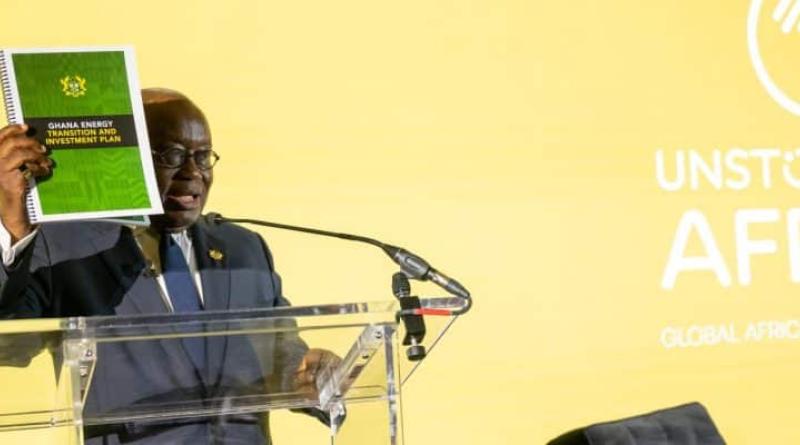Energy transition: Ghana will invest $550 billion by 2060

The government of Ghana is launching a $550 billion investment plan for the energy transition. Among the sectors targeted are electricity and mobility.
While Ghana is plunged into an economic crisis since the cessation of payment of part of its debt at the end of 2022, President Nana Addo Dankwa Akufo-Addo announces an investment plan in favor of the energy transition. This plan was presented to the international community during the Global Africa Business Initiative, an event organized on the sidelines of the 78th General Assembly of the United Nations (UN) in New York in the United States of America.
Through this plan, Ghana is aiming for carbon neutrality by 2060. As part of the previous plan, this West African country aimed for development with net zero emissions by 2070. For the organization international Sustainable Energy for All (SE4All), this new plan shows that “Ghana has revised its ambitions upwards” . So over the next few years, Accra plans to mobilize $550 billion with the help of the international community for the deployment of low-carbon solutions in key sectors of its economy, including oil and gas, industry, transport, cooking and electricity.
Decarbonization of transport
Currently, Ghana has an installed electricity capacity of 5,300 MW, including more than 3,000 MW from fossil sources, notably gas and oil, according to Power Africa. When it comes to clean cooking, everything remains to be done since 70% of the population still cooks with wood fires and other polluting solutions, according to the World Bank.
“This plan demonstrates our desire to encourage green industries, promote the evolution of cutting-edge low-carbon technologies and propel our country towards a sustainable industrial revolution, while providing equal growth opportunities for men and women. to women,” explained President Nana Addo Dankwa Akufo-Addo.
The funding mobilized will enable the distribution of ecological stoves, renewable energies, low-carbon hydrogen and electric mobility. According to estimates by the Ghanaian government, these sectors should cover 90% of the targeted emissions reduction by 2060. In the same period, at least 400,000 jobs could be created in sectors linked to the energy transition.
On the other hand, if this plan is not implemented, “in a business as usual scenario, Ghana's emissions are expected to increase from 28 million tonnes of CO 2 equivalent in 2021 to more than 140 million tonnes in 2050, the "essential for the growth of emissions from transport, under the effect of population growth, the increase in gross domestic product (GDP) per capita and vehicle ownership", warns the organization SE4All which works to implement implementation of the 7th Sustainable Development Goal (SDG) which aims for universal access to renewable energies by 2030. The path to energy transition is therefore mapped out in Ghana. It is up to financial partners and professionals in the energy sector to do the rest…





